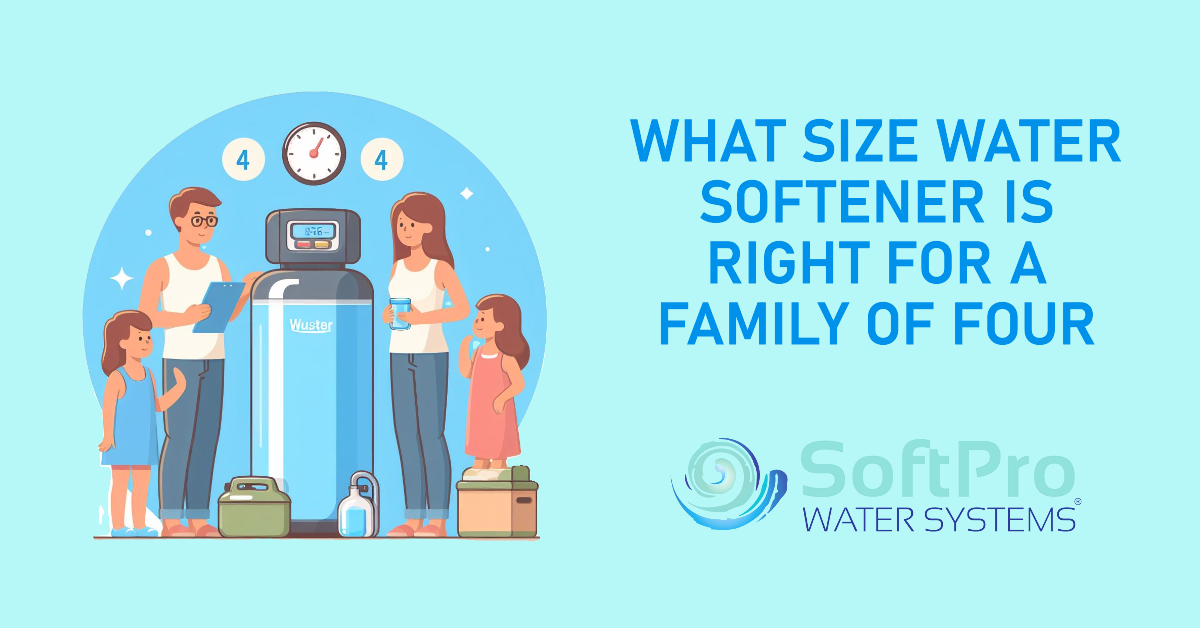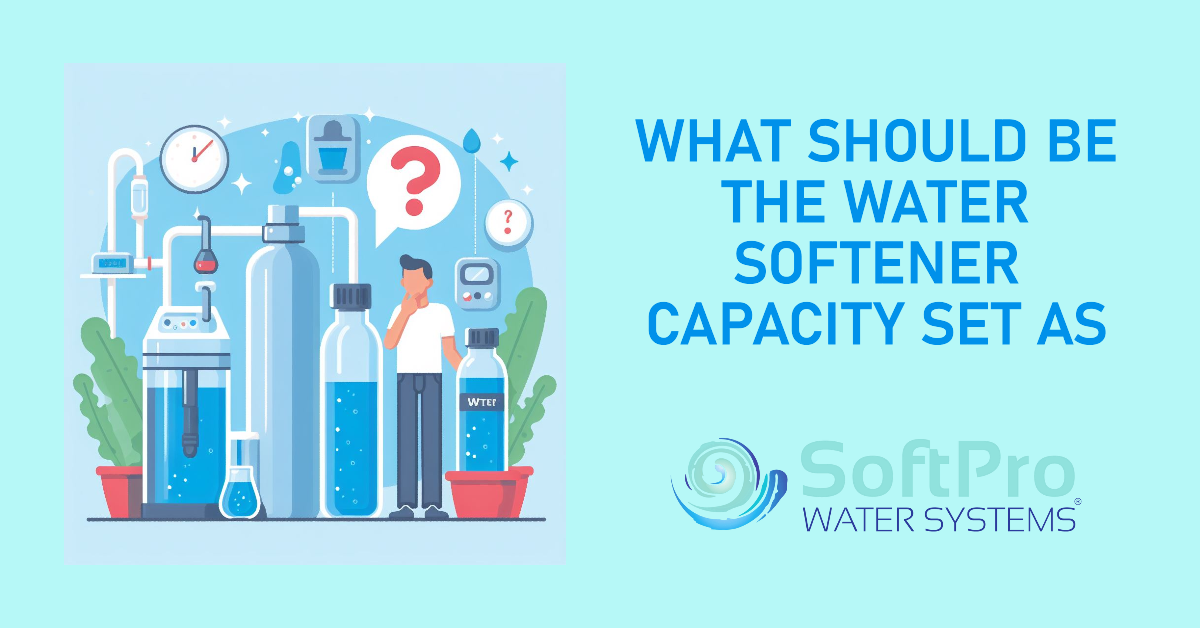How Much Does an Ion Exchange Water Softener Cost?
Table of Contents
Understanding Ion Exchange Water Softeners and Their Benefits
Ion exchange water softeners are household appliances that remove hard water minerals, primarily calcium and magnesium, through a process called ion exchange. This process effectively eliminates the common problems associated with hard water, such as soap scum buildup, dry skin and hair, reduced appliance efficiency, and even clogged pipes.
Here's a breakdown of how ion exchange water softeners work:
- Hard water enters the resin tank: The water first flows through a mineral tank filled with resin beads. These beads are coated with sodium ions (salt), which have a strong attraction to calcium and magnesium ions.
- Ion exchange process: As the hard water passes through the resin, the calcium and magnesium ions in the water are attracted to and exchanged with the sodium ions on the resin beads. This process effectively removes the hardness minerals from the water.
- Softened water is released: The softened water, now free of calcium and magnesium, flows out of the resin tank and into your home's plumbing system, ready for use.
- Regeneration cycle: Periodically, the resin beads need to be recharged with sodium ions to maintain their softening capacity. This is done through a process called regeneration, which involves flushing the resin tank with a concentrated saltwater solution.
Benefits of Using an Ion Exchange Water Softener:
- Softer skin and hair: Hard water can leave your skin feeling dry and itchy, and your hair dull and lifeless. Softened water, on the other hand, promotes healthier skin and hair by removing the minerals that contribute to dryness and irritation.
- Reduced soap scum and scale buildup: Hard water can cause soap scum to accumulate on shower walls, bathtubs, sinks, and kitchen appliances. It can also lead to scale buildup inside pipes and water heaters, reducing their efficiency and lifespan. Softened water prevents these problems by eliminating the minerals that cause soap scum and scale.
- Enhanced appliance efficiency: Hard water can reduce the efficiency of appliances that use water, such as dishwashers, washing machines, and water heaters. This is because the minerals in hard water can form deposits on heating elements and other internal components, making them work harder and less efficiently. Softened water helps appliances run more efficiently and last longer.
- Lower water usage and potential cost savings: Softened water can actually lead to lower water usage and potential cost savings. This is because you'll need less soap and detergent to create a lather, and you'll spend less time rinsing dishes and laundry to remove soap residue. Additionally, softened water can help extend the life of your appliances, reducing the need for repairs or replacements.
Factors Affecting the Price of an Ion Exchange Water Softener
The price of an ion exchange water softener varies widely, ranging from around $200 for basic portable models to upwards of $6,000 for high-end dual-tank systems with advanced features. Several key factors influence the cost, and understanding these can help you make an informed decision about which system is right for your needs and budget.
Here are the primary factors that affect the price of an ion exchange water softener:
Type of water softener:
- Single-tank systems: These are the most basic and affordable option, typically costing between $200 and $1,500. However, they have a limited capacity and require more frequent regeneration, which can increase operating costs.
- Dual-tank systems: These offer higher capacity and continuous softened water supply, ranging from $1,500 to $6,000 or more. They are ideal for larger households or those with high water usage.
- Portable water softeners: These are small, countertop units that are effective for single faucets or appliances, costing between $50 and $200. However, they have a very limited capacity and are not suitable for whole-house water treatment.
Capacity and flow rate:
- Capacity: The capacity of a water softener is measured in grains (gr) and refers to the amount of hard water minerals it can remove before needing regeneration. Larger capacity systems are generally more expensive, but they are necessary for larger households or those with high water usage.
- Flow rate: The flow rate refers to the amount of water the softener can deliver per minute. Systems with higher flow rates are typically more expensive, but they are essential for ensuring adequate water pressure throughout your home.
Brand and features:
- Brand: Reputable brands with established track records and high-quality components often command higher prices than lesser-known brands.
- Features: Additional features like digital controls, water monitoring systems, and advanced filtration can significantly increase the cost of a water softener.
Installation and maintenance costs:
- Installation: Professional installation typically costs between $200 and $500, but it can be more expensive depending on the complexity of the system and the local labor rates.
- Maintenance: The ongoing costs of salt for regeneration and occasional filter replacements should also be factored into the overall cost of ownership.
The cheapest water softener is not always the best value. Consider your specific needs and budget when choosing a system, and don't hesitate to shop around and compare prices from different retailers and installation companies.
According to a Consumer Reports survey, the average cost of a mid-range, single-tank water softener for a moderate-sized household was $750, while the average cost for a high-end, dual-tank system with advanced features was $2,500.
Tips for Saving Money on Ion Exchange Water Softeners
While investing in an ion exchange water softener can significantly improve your household water quality and bring long-term benefits, navigating the cost landscape can feel daunting. Fortunately, various strategies can help you be a savvy shopper and find the best value for your budget. Here are some practical tips for minimizing expenses when purchasing and maintaining an ion exchange water softener:
Comparing Prices and Finding Deals
- Online retailers vs. local plumbers: Researching prices online can often reveal the most competitive deals. However, consider factoring in potential installation costs from local plumbers, who might offer bundled packages or competitive rates.
- Seasonal discounts and promotions: Keep an eye out for seasonal sales or manufacturer rebates, particularly around major holidays or plumbing industry events.
- Manufacturer rebates and coupons: Many manufacturers offer rebates or coupons directly through their websites or participating retailers. Don't hesitate to contact customer service or visit retailer websites to inquire about current promotions.
Choosing the Right System for Your Needs
- Accurately assessing water hardness and flow rate: Accurately measure your water hardness using a home test kit. This helps you choose a system with the appropriate capacity to effectively handle your specific water conditions. Similarly, understanding your home's peak water flow rate ensures the chosen system delivers adequate pressure without straining its capabilities.
- Avoiding unnecessary features and oversized systems: Resist the temptation to splurge on features you might not utilize regularly. Opting for a system with essential functionalities that cater to your specific needs can significantly reduce costs. Likewise, avoid purchasing an oversized system for your household size and water usage, as larger capacity often translates to a higher price tag.
- Considering DIY installation: If you're handy and comfortable with plumbing tasks, installing a water softener yourself can be a cost-effective option. However, ensure you possess the necessary skills and tools before taking on this task.
Maintaining Your Water Softener Efficiently
- Optimizing regeneration cycles: Adjusting the regeneration cycle settings based on your actual water usage can significantly reduce salt consumption and extend the lifespan of your system. Consulting the user manual or contacting the manufacturer for guidance on optimal settings is highly recommended.
- Selecting efficient salt types and using them properly: Different salt types vary in purity and efficiency. Choosing high-purity salt, like evaporated pellets, reduces waste and minimizes the number of regeneration cycles needed. Additionally, avoid overfilling the salt tank, as this can lead to premature salt bridge formation and decreased efficiency.
- Regularly cleaning and maintaining filters and components: Adhering to the manufacturer's recommended maintenance schedule, including timely filter replacements and cleaning cycles, keeps your system functioning optimally and prevents unnecessary wear and tear, potentially extending its lifespan and reducing replacement costs.
By implementing these tips and adopting a strategic approach, you can effectively navigate the cost landscape of ion exchange water softeners and find a system that fits your budget and delivers long-term value for your home. Remember, investing in high-quality components and proper maintenance can ultimately save you money in the long run by avoiding frequent repairs or premature system replacements.
"Taking the time to research your options, compare prices, and choose a system that truly suits your needs can significantly reduce the upfront cost of an ion exchange water softener. Additionally, implementing simple maintenance practices can optimize efficiency and extend the lifespan of your system, further maximizing your investment." - Heather, Water Treatment Specialist at Quality Water Treatment.
Conclusion: Investing in Softer Water - Key Takeaways and a Look Ahead
Navigating the world of ion exchange water softeners can seem overwhelming, especially with the wide range of prices and options available. However, remember, investing in a water softener is an investment in your home's comfort, efficiency, and potentially, even its value. By understanding the factors that influence cost, adopting a strategic approach, and prioritizing informed choices, you can reap the benefits of softened water without breaking the bank.
Key takeaways to remember:
- Ion exchange water softeners can range from $200 to $6,000, with the price influenced by system type, capacity, features, brand, and installation costs.
- Accurately assessing your water hardness and flow rate is crucial for choosing the right system size and capacity.
- Comparing prices online and offline can help you find the best deals, while considering seasonal discounts and manufacturer rebates can further optimize your savings.
- Choosing a system with features you'll actually use and avoiding unnecessary upgrades can significantly reduce the upfront cost.
- Optimizing regeneration cycles, using efficient salt types, and practicing regular maintenance can extend your system's lifespan and minimize operating costs.
Looking ahead:
While the initial investment in a water softener might seem significant, consider the long-term benefits and potential cost savings. Softened water can:
- Extend the lifespan of appliances by reducing scale buildup and improving efficiency.
- Minimize soap and detergent usage, leading to potential cost savings on household products.
- Contribute to a healthier and more comfortable living environment by reducing dry skin and hair, preventing soap scum buildup, and improving overall water quality.
Remember, the decision to invest in a water softener is a personal one. However, by considering the information and tips provided here, you can make an informed and confident choice that suits your needs and budget. With careful planning and strategic decision-making, you can unlock the many benefits that softened water has to offer, creating a more comfortable and efficient home environment for yourself and your loved ones.




![SoftPro Chlorine+ Carbon Whole House Water Filter to Remove PFAS, Chlorine, Chloramine & Pesticides [City Water Filters Series]](http://www.softprowatersystems.com/cdn/shop/products/softpro-whole-house-chlorine-filter-282008.jpg?v=1758858973&width=140)
![SoftPro Iron Filter - Iron Master AIO - Best Iron Filter for Well Water [Air Injected Water Filter / Katalox]](http://www.softprowatersystems.com/cdn/shop/products/softpro-iron-master-aio-water-filtration-system-remove-iron-sulfur-manganese-using-air-injection-for-optimal-performance-412868.jpg?v=1758859831&width=140)













